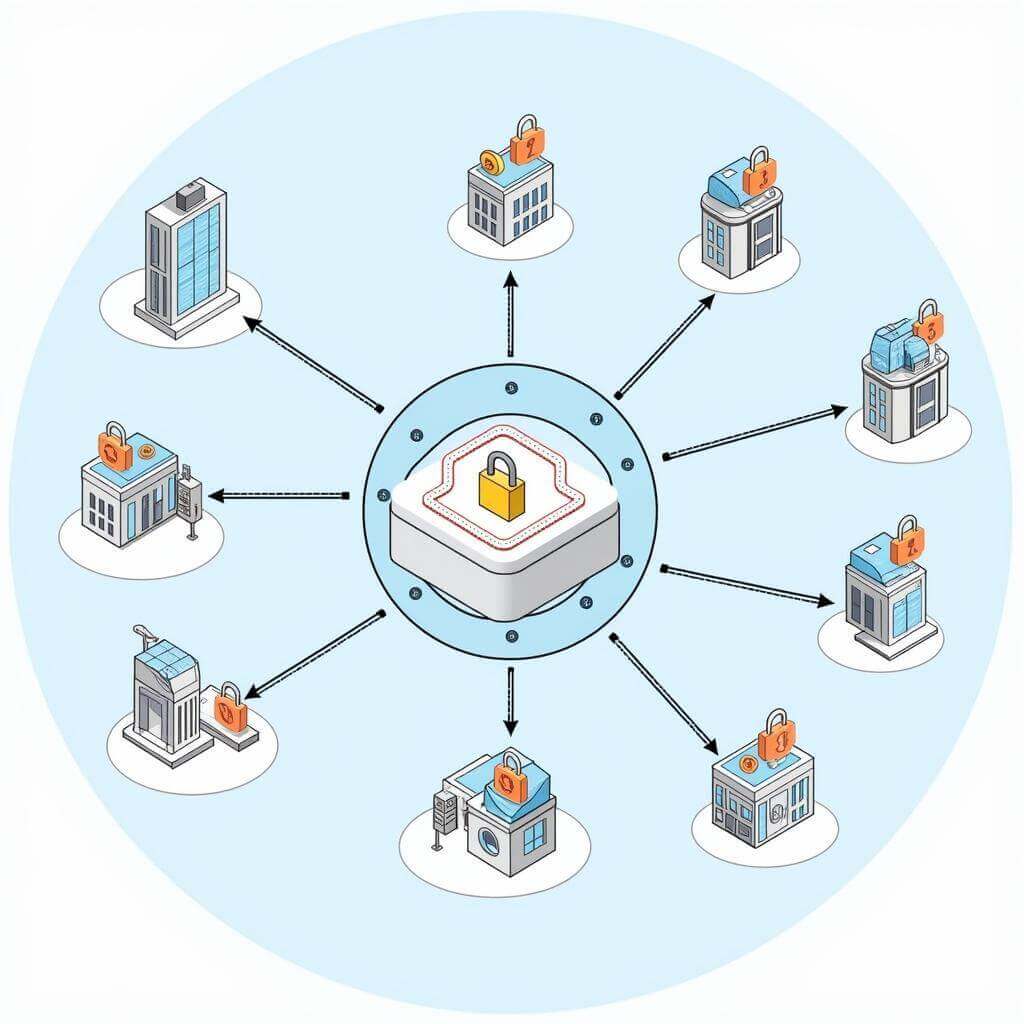The topic of how fintech is disrupting traditional banking has become increasingly prevalent in IELTS Writing Task 2 exams. Based on recent trends, this subject is likely to appear more frequently in future tests, especially given its relevance to global economic shifts and technological advancements. Let’s examine a relevant question that has appeared in past IELTS exams and analyze it in detail.
Nội dung bài viết
Some people think that the development of financial technology (fintech) will eventually replace traditional banking systems. To what extent do you agree or disagree with this view?
Analyzing the Question
This question requires candidates to discuss the impact of fintech on traditional banking systems. It’s an opinion-based essay where you need to express your viewpoint and support it with relevant examples and logical reasoning. The key aspects to address are:
- The current state of fintech and traditional banking
- The potential of fintech to replace traditional banking systems
- The limitations or challenges fintech may face
- The possible future scenarios for both fintech and traditional banking
How fintech companies are disrupting traditional banking models and the collaborative opportunities.
Sample Essay 1 (Band 8-9)
The rapid advancement of financial technology has led some to believe that it will eventually supplant traditional banking systems. While I agree that fintech is revolutionizing the financial sector, I believe it is more likely to transform rather than completely replace conventional banking.
Undoubtedly, fintech has made significant inroads into traditional banking territories. Mobile payment platforms, peer-to-peer lending services, and robo-advisors have gained immense popularity, especially among younger generations who value convenience and accessibility. These innovations have forced traditional banks to adapt and modernize their services to remain competitive. Moreover, fintech solutions often offer lower fees and higher interest rates, attracting customers away from conventional banks.
However, it is crucial to consider the strengths of traditional banking systems that may be difficult for fintech to replicate entirely. Established banks have a long history of regulatory compliance, extensive physical infrastructure, and deep-rooted customer trust. These factors are particularly important for complex financial transactions, such as mortgages or large business loans, where personal interactions and established relationships still play a significant role.
Furthermore, the future of finance is likely to be characterized by collaboration rather than complete replacement. Many traditional banks are investing heavily in their own fintech initiatives or partnering with startups to enhance their digital offerings. This hybrid approach allows them to leverage the innovation of fintech while maintaining the stability and reliability associated with established financial institutions.
In conclusion, while fintech is undoubtedly disrupting the banking sector, it is more probable that we will see a transformation of traditional banking rather than its obsolescence. The financial landscape of the future is likely to be a blend of innovative fintech solutions and evolved traditional banking services, offering consumers the best of both worlds.
How digital currencies disrupt traditional banking
Explanation of Band 8-9 Score
This essay demonstrates several characteristics of a high-scoring IELTS Writing Task 2 response:
- Clear position: The writer’s stance is evident from the introduction and consistently maintained throughout the essay.
- Coherent structure: The essay follows a logical progression of ideas, with each paragraph addressing a specific aspect of the argument.
- Sophisticated vocabulary: The use of words like “supplant,” “inroads,” and “obsolescence” showcases a wide range of vocabulary.
- Complex sentence structures: The essay employs a mix of simple and complex sentences, demonstrating linguistic flexibility.
- Relevant examples: Specific examples of fintech innovations and traditional banking strengths are provided to support the arguments.
- Balanced view: The essay considers both sides of the argument, showing a nuanced understanding of the topic.
- Conclusion: The final paragraph effectively summarizes the main points and restates the writer’s position.
Sample Essay 2 (Band 6-7)
Nowadays, financial technology is becoming more popular and some people think it will replace traditional banks in the future. I partly agree with this idea because fintech has many advantages, but I also think traditional banks will still be important.
Fintech has many benefits that make it attractive to users. It is very convenient because people can use their smartphones to do banking anytime and anywhere. Also, fintech companies often have lower fees than traditional banks, which saves money for customers. For example, transferring money internationally is much cheaper with fintech apps than with traditional bank transfers.
However, traditional banks still have some advantages that fintech cannot easily replace. Many people, especially older generations, trust traditional banks more because they have been around for a long time. Traditional banks also offer face-to-face services, which some customers prefer for complex financial matters like getting a mortgage or financial advice.
I think in the future, fintech and traditional banks will probably work together. Many banks are already starting to use more technology in their services. They might partner with fintech companies to improve their online and mobile banking options. This way, customers can get the benefits of both fintech and traditional banking.
In conclusion, while fintech is changing the banking industry, I don’t think it will completely replace traditional banks. Instead, we might see a mix of both fintech and traditional banking services in the future, giving customers more choices for their financial needs.
How digital transformation disrupts traditional industries
Explanation of Band 6-7 Score
This essay demonstrates several characteristics of a mid-range IELTS Writing Task 2 response:
- Clear position: The writer’s stance is evident, though not as sophisticated as in the higher-band essay.
- Basic structure: The essay follows a simple but clear structure with an introduction, body paragraphs, and conclusion.
- Adequate vocabulary: The language used is appropriate but less varied compared to the Band 8-9 essay.
- Mix of sentence structures: There is some variation in sentence structure, but less complexity overall.
- Relevant examples: The essay provides some examples, though they are less specific and developed compared to the higher-band essay.
- Balanced view: The writer considers both sides of the argument, showing a fair understanding of the topic.
- Conclusion: The final paragraph summarizes the main points, though less effectively than the Band 8-9 essay.
Key Vocabulary to Remember
- Fintech (noun) /ˈfɪntek/ – Financial technology
- Disrupt (verb) /dɪsˈrʌpt/ – To cause disorder or turmoil in
- Supplant (verb) /səˈplænt/ – To take the place of
- Obsolescence (noun) /ˌɒbsəˈlesns/ – The process of becoming obsolete or outdated
- Peer-to-peer (adjective) /pɪər tə pɪər/ – Involving direct interaction between two parties
- Robo-advisor (noun) /ˈroʊboʊ ædˈvaɪzər/ – An online wealth management service that provides automated investment advice
- Regulatory compliance (noun) /ˌreɡjəˈleɪtəri kəmˈplaɪəns/ – The process of adhering to laws and regulations
- Infrastructure (noun) /ˈɪnfrəstrʌktʃər/ – The basic physical and organizational structures needed for operation
- Hybrid (adjective) /ˈhaɪbrɪd/ – Composed of mixed parts or having a mixed character
- Transformation (noun) /ˌtrænsfərˈmeɪʃn/ – A thorough or dramatic change in form or appearance
 Fintech disrupting traditional banking illustration
Fintech disrupting traditional banking illustration
Conclusion
The topic of fintech disrupting traditional banking is likely to remain relevant in IELTS Writing Task 2 exams. Future questions might explore related themes such as:
- The impact of cryptocurrencies on national economies
- The role of artificial intelligence in financial services
- The challenges of regulating the fintech industry
- The digital divide in access to financial services
To prepare for such topics, practice writing essays that analyze the pros and cons of technological advancements in finance, consider global perspectives, and discuss potential future scenarios. Remember to support your arguments with relevant examples and maintain a balanced view. Feel free to share your practice essays in the comments section for feedback and further discussion.


